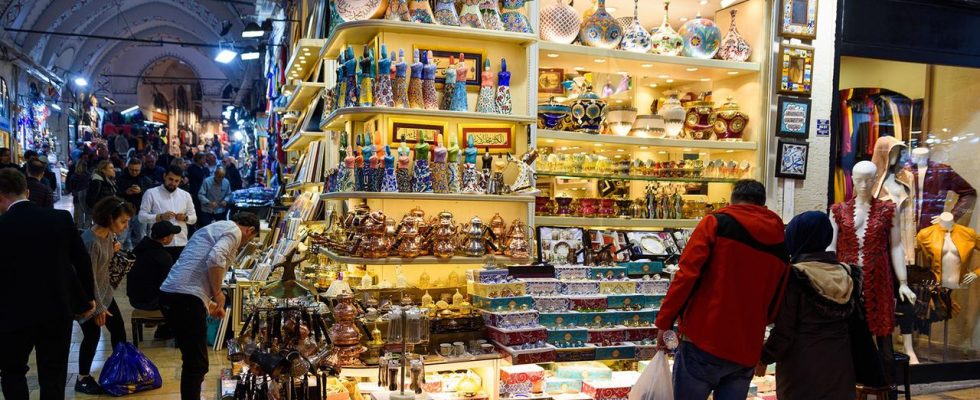The lira hits a low just two days before the runoff election in Turkey. The fall in the national currency reflects expectations for President Erdogan and further exacerbates inflation.
Shortly before the decisive runoff election for the presidential office in Turkey next weekend, the national currency, the lira, has fallen to a low point. At the same time, the dollar is rising and, at 20.1166 lira, is at times more expensive than ever.
The current development reflects the expectations of currency market participants that the incumbent President Recep Tayyip Erdogan will prevail in the run-off election. In the elections on May 14, he narrowly missed an absolute majority.
“Unless there is another big surprise, Erdogan’s rule, including the unorthodox policy described as the Turkish economic model, will probably continue,” comments Commerzbank analyst Tatha Ghose.
Turkey’s central bank leaves interest rates untouched
The recent fall in the lira’s exchange rate is one in a long series of exchange rate losses: In the last five years, the lira has lost almost 80 percent of its value against the dollar.
This in turn exacerbates the inflation problem, since Turkey has to import many goods and raw materials, which are becoming more expensive due to the weak lira. The inflation rate rose to 85 percent last year and is currently at almost 44 percent. This puts a strain on the purchasing power of the Turkish population.
Interest rate policy contrary to conventional wisdom
Actually, according to current economic doctrine, significant interest rate increases would be the order of the day in order to cool down economic activity and bring inflation under control. The Turkish central bank decided this week to leave the key interest rate unchanged at 8.5 percent. This decision was broadly in line with economists’ expectations.
The statement by the central bank on the interest rate decision states that core inflation – i.e. inflation excluding volatile energy and food prices – has continued to improve. In addition, the central bank will closely monitor the effects of the earthquake on price developments. At the beginning of February, an earthquake in the Turkish-Syrian border area claimed numerous lives. The central bank last reduced the key interest rate by 0.50 percentage points in February in order to support the economy and employment.
However, there are voices within the government that are calling for a change in economic policy. “They are studying a new economic model because the existing model cannot be sustained,” a senior government official, who wished to remain anonymous, told Reuters. “Basically, it would gradually increase the interest rate.”
Gulf States are temporarily supporting Türkiye with capital
According to President Erdogan, Turkey has been temporarily supported with capital from the Gulf States. The countries have thus relieved the Turkish central bank and the financial markets, Erdogan said yesterday in an interview with the broadcaster CNN Turkey. “Our economy, banking and financial system is quite strong. For the time being, some Gulf countries have put money into our system – even if it’s only for a short time.”
After the runoff on May 28, he wanted to thank the donors. Erdogan did not name any countries or amounts. Turkey has already concluded swap agreements with the United Arab Emirates, China, Qatar and South Korea worth around $28 billion in recent years.

